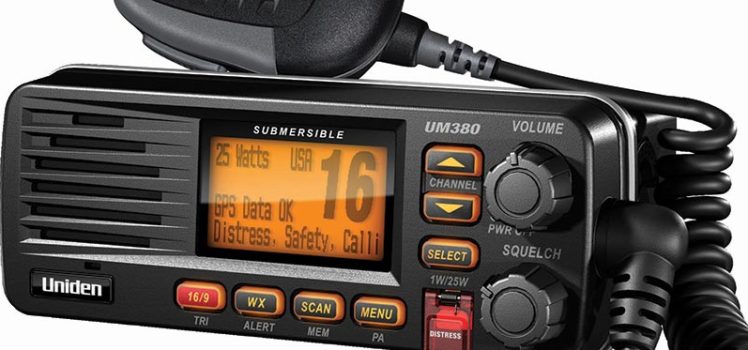I know I’m not the only one!

Not that long ago one of our friends commented that he had noticed that Rebecca and I, or was it mostly me, have adopted a number of VHF radio phrases into our day-to-day vocabulary. I definitely notice a few of the things that I say. For example, instead of saying what, or could you repeat that when I don’t quite hear what someone has said to me, I’ll frequently respond with Say Again. I definitely say Stand By when I want someone to hang on for a minute, and use Negative instead of the word No occasionally. I’m fairly sure I say Roger from time to time too, and perhaps even a few others. Do I know why I do this? Negative, but if you’ll Stand By for a moment, I’ll see if I can come up with a good explanation. 🙂
Radio newbies: Check out the above link to find the meaning of these, and many other important radio words and phrases. Not only does using proper radio speak make communication easier, and limit misunderstandings, it will make you sound less like a newbie to other boaters too!


It drove me crazy when I realized that as a military spouse, military speak was invading my vocab. Of course it made learning radio speak simpler.
Any particular examples you’d like to share? 🙂
This is also VERY true for aviators and military. Being able to use military time, the phonetic alphabet, “clear” terminology (negative, affirmative, wilco, roger), and short/precise communication is super helpful. When in busy airspace, the biggest upset to aviation is the pilot that gets on the radio with a never ending paragraph of useless words that could be distilled down to about ten words. I’ve heard the same on marine radio but tend to give those folks a lot more slack since there is no real “license” required. At times, it would be nice! 🙂
A pet peeve of mine, but it never bothers me enough to cause me to join the “radio police.”
It has invaded my language as well but it seems like those that surround me don’t have too many issues with it. They never have to guess what I said. What is worse is I’ve noticed it creeping into my emails and internet chatting etiquette as well. This many find to be more annoying than using it in verbal communication.
I use those words in internet chat too. 🙂
Hi Mike Years ago when I got my radio operator licence for aviation I had to demonstrate that I knew the phonetic alphabet and then answer only one question. That question was == What does the term “over and out” mean. My response was “over” means your turn to talk and “out” means I am turning my radio off so in essence “over and out” is a nonsense term that means you can go ahead and talk but I won’t be listening because I am turning my radio off. I passed.
This term along with people running outboard motors from the wrong side plus other things I cannot think of right now are a result of movie directors who keep perpetuating ignorance rather than make an effort to educate. It is much easier to “get the shot” of the hero if he is sitting on the port tube of the inflatable. Everyone who knows nothing about radio usage knows that you always end with ‘over and out”. It is in the movies.
Thanks Bill
Over and Out is definitely on the list of misused words/phrases that we make fun of. 🙂
For the record though, I sit on the port tube when driving the outboard! 😛
I have been told that engines were originally designed to have the operator sit the opposite way, but no one ever told me that when I started, so port side it is for me. For the record though, under normal circumstances, with 1-3 people in the dinghy, I sit way in front of the tiller so it really is irrelevant.
Yep, most of mine from the military though. Phonetic alphabet and certain words that were easily misconstrued over the air or on sound powered networks. “Fire” for example was only for flames, “shoot” was for releasing a weapon or projectile. A valve was always only either open or shut never closed. “Say again” is one I still use all the time.
We don’t use the phonetic alphabet often, but both still know it.